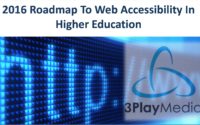
Perceptions of online tutorials for distance learning in mathematics and computing
We report on student and staff perceptions of synchronous online teaching and learning sessions in mathematics and computing. The study is based on two surveys of students and tutors conducted 5 years apart, and focusses on the educational experience as well as societal and accessibility dimensions. Key conclusions are that both staff and students value […]















